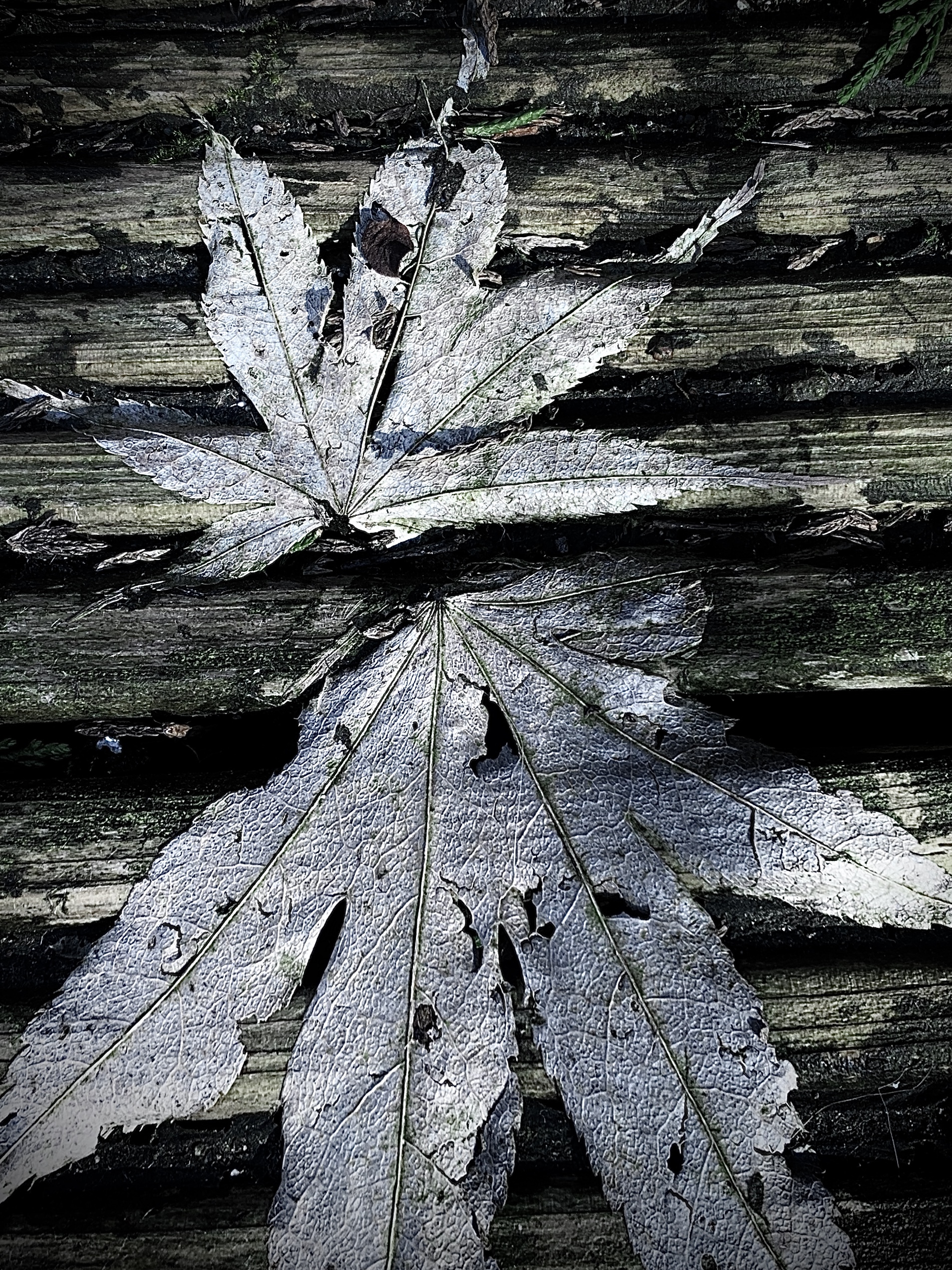This is part 2 of The Retro Bar at The End of the Universe’s conceptual writing project. It follows on from Kenopsia, some days later.
late in the afternoon, during the time between the evening and the night, I stepped out into the middle of the decked area my the garden. Unusually, I was looking at the surface of the decking, I made a mental note that it needed cleaning. It was at this moment that I felt a stillness in the atmosphere that could only occur at this time of day, when diurnal creatures disappear and sound of humans dulls.
It was in this moment that I noticed something, a leaf, that I had never really seen before. What I mean by this, is a sense of looking, because it is possible to glance at something but never really contemplate it. I was looking at a fallen leaf from a Japanese Maple tree. Although, this might not appear to be anything out of the ordinary, in this place the leaf held multiple meanings which became a mixture of both personal and broader significations. These heady thoughts mushroomed in my mind in an instant.
I was compelled to capture this leaf, and so, I reached for my phone. The photograph could never do this leaf justice as it could not capture the sense of place brought about by my experience in this landscape. However, it was a trace, a visual sign from which I could attempt to deconstruct a set of thoughts which were knotted in a flash.
This was a complex knot of dialectically unified oppositions- a fancy term for contradictions- that swirled through the significations of the image of the leaf. Yes, I say the image because the moment I photographed the leaf it became a sign of the leaf.
As I write this I am not looking at the leaf in its environment but on a screen in my living room. This image of a leaf is a suddenly not a leaf but part of an utterance chain of language which is translated infinitum. Of course, this was a 'dead leaf' separated from its parent plant because it had fulfilled its job for the year. Its decomposition had resulted in a paper-like quality which had exposed the intricate nature of its internal structure. Yet, it had taken on the imprint or trace of the wooden surface it had landed upon. The leaf was a trace of a trace. A ghost of a previous time/life that existed in that moment, on the decking , as I observed its delicate natural architecture. In that sense the leaf was both dead and alive. It was part of a wider ecological system always changing and ephemeral.
The leaf was also a trace of both the natural and the human. It was now part of a system and an interrelationship with the manufactured wooden surface of the decking, a form of natural tracing paper, that inscribed an image of the decking.
